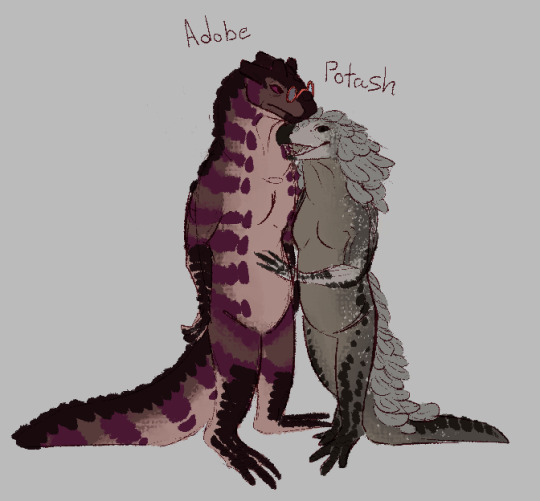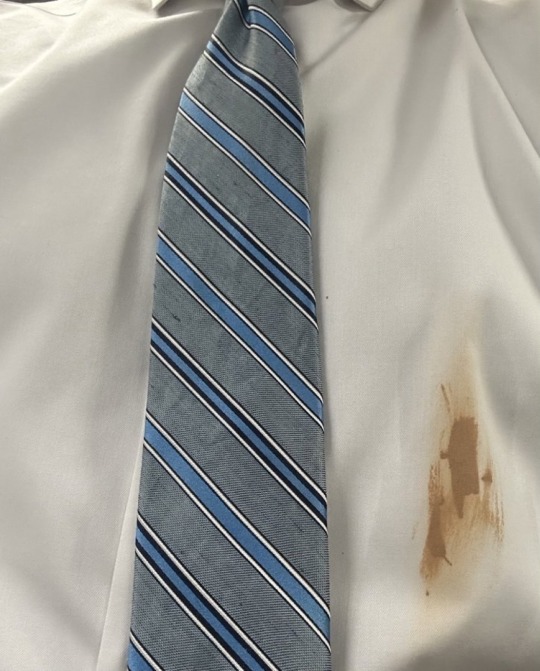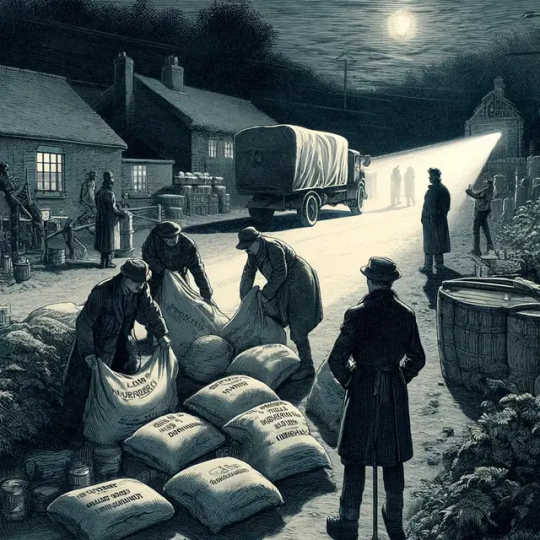#Potash
Explore tagged Tumblr posts
Text



the odd couple
#I love them#they are both treasures#evgeni malkin#dan potash#pittsburgh penguins#mine:gif#mine:geno#gif:g#geno#potash#penguins#media day 23#the colouring on this video was foul though :(
259 notes
·
View notes
Text
strongbad might have accidently revitalized the potash industry...
in fan costumes 2021 he asked his fans to dress up as something with this prompt

the following year interest in potash spiked according to google trends

20 notes
·
View notes
Text

Potash mines of Alsace in Wittenheim, Alsace region of France
French vintage postcard
#postcard#ansichtskarte#briefkaart#france#photography#carte postale#vintage#postkarte#photo#historic#wittenheim#postkaart#ephemera#sepia#alsace#potash#mines#region#french#tarjeta#postal
13 notes
·
View notes
Text

Anthony Fineran (B 1981)
4 notes
·
View notes
Text





the gang's all here
#mothart#cracks my knuckles#adobe#potash#lye#foxfire#grout#sheil#dingo#the babys dont get tags . sorry children
16 notes
·
View notes
Text

Ujjawala Black Ratan
A Unique combination of Humic Amino, Fulvic Acid & Sea Weed Ujjawala Black Ratan an unique soil conditioner, a naturally accusing organic substance consisting primally of Humic acid, Amino acid, Sea Weed, Fulvic acid and minor levels of minerals gypsum and clays. The molecular structure provides numerous benefits to crop production. Suitable for all kinds of crops, vegetable and fruits. Best for fertination, drip & foliar spray. Dosage: Soil Application: 1 kg of Black Ratan for 1 acre. Foliar spray: 0.50gm for 1 ltr. of water.
2 notes
·
View notes
Text
Some folks in the notes mention using long pepper rather than black pepper.
"Sounds like it must sting, but hey, whatever gets you going!"
#b dylan hollis#video#cookies#all purpose flour#egg#molasses#butter#baking soda#potash#honey#brown sugar#cardamom#confectioners' sugar#powdered sugar#cloves#nutmeg#cinnamon#anise#mace
13K notes
·
View notes
Text
What the fuck is potash and why is it more important THAN FRESH DRINKING WATER?
#michigan#potash#mining#climate change#you cannot eat money#fuck capitalism#anti imperialism#environmentalism#global warming#mother nature is going to kill us all and we deserve it#great lakes#water is a human right
1 note
·
View note
Text
Trump’s Unwelcome News to Auto Chiefs: Buckle Up for What’s to Come
The line fell silent. In a phone call from the Oval Office, President Trump had just delivered unwelcome news to three of America’s most powerful auto executives: Mary Barra of General Motors, John Elkann of Stellantis and Jim Farley of Ford. Everyone needs to buckle up, Mr. Trump said on the call, which took place in early March. Tariffs are going into effect on April 2. It’s time for everyone…
#Agriculture and Farming#Automobiles#Barra#Bessent#canada#China#Customs (Tariff)#Donald J#Elkann#Europe#Farley#Ford Motor Co#General Motors#Howard W#international relations#International Trade and World Market#James D Jr (1962- )#John#Lutnick#Mary T#Mexico#Potash#Scott#Stellantis NV#Trump#United States Economy#United States Politics and Government
0 notes
Text
What is Potash and why could it be Canada’s trump card in the trade war?
youtube
0 notes
Text
dan potash is SUCH a nice human, was SO lovely when I met him, but is also an ABSOLUTE disaster
(and frankly, that only makes me like him more)


#I do not know how he ended up as a broadcast anchor#but he is precious#and should be protected at all costs#wendy rambles#potash
48 notes
·
View notes
Text
youtube
#project rebound#belle of the ranch#trump#farmers#canada#iowa#chuck grassley#agriculture#tariffs#pigs#trade war#Youtube#potash#climate change#climate crisis#food security
0 notes
Text

Amélie II shaft of the Alsace Potash Mines in Wittelsheim, Alsace region of France
French vintage postcard
#postkaart#photo#postcard#French#France#Potash#Amelie#shaft#photography#postal#sepia#postkarte#Alsace#briefkaart#vintage#carte postale#ansichtskarte#Wittelsheim#Mines#ephemera#historic#region#tarjeta
2 notes
·
View notes
Text
Smuggling Fertilisers
When we think about fertilisers, it’s easy to picture neatly packaged bags headed to farms, supporting the crops that feed the world. But behind this vital industry lies a shadowy side that’s less often discussed: the fertiliser black market.
Yes, it’s real. And its impact goes far beyond local borders, rippling across global markets, influencing prices, disrupting supply chains, and even threatening food security.
In regions with subsidies or price controls, fertilisers often become targets for smuggling. Products meant for local farmers find their way across borders, sold at inflated prices, leaving domestic markets short and farmers without access to critical resources.
Black market fertilisers often come with hidden risks-counterfeit products diluted or mixed with harmful substances. The result? Poor crop performance, long-term soil damage, and financial losses for unsuspecting farmers.
Urea, potash, and other essential fertilisers are commodities that carry geopolitical weight. In regions affected by sanctions or trade restrictions, the black market thrives, further destabilising local economies and widening inequality in resource access.
Illegal trade doesn’t just harm farmers-it undermines legitimate businesses too. Traders face unfair competition, producers lose revenue, and governments miss out on tax income that could have been reinvested into agricultural infrastructure.
But it’s not a hopeless situation. Advances in traceability systems, payments tracking, and stronger regulatory frameworks are helping to tackle these challenges. The fertiliser industry isn’t just about products—it’s about trust, transparency, and responsibility.
#fertilisers #fertilizers #imstory #agriculture #trading #smuggling #market #urea #potash #globaltrade #transparency #business

0 notes
Text
Mobilizes potash in all types of soil and increases yield of crops up to 15-20%. Helps in photosynthesis. Increases resistance of crops to hot & dry condition. Improves quality of fruits as well as grains. Increases sugar content and size of fruits. Being an environment friendly biological fertilizer good alternative for chemical fertilizers.
1 note
·
View note
Text

Did you know? Samuel Hopkins was the first person to receive a U.S. patent on July 31, 1790. His patent was for an innovative process of making potash, an important ingredient used in the production of soap and fertilizer. Potash is chemically composed principally of potassium carbonate. Hopkins' patent was signed by President George Washington, Attorney General Edmund Randolph, and Secretary of State Thomas Jefferson. This event marked the beginning of the United States patent system, establishing a legal foundation for protecting inventors' rights and encouraging innovation.
0 notes